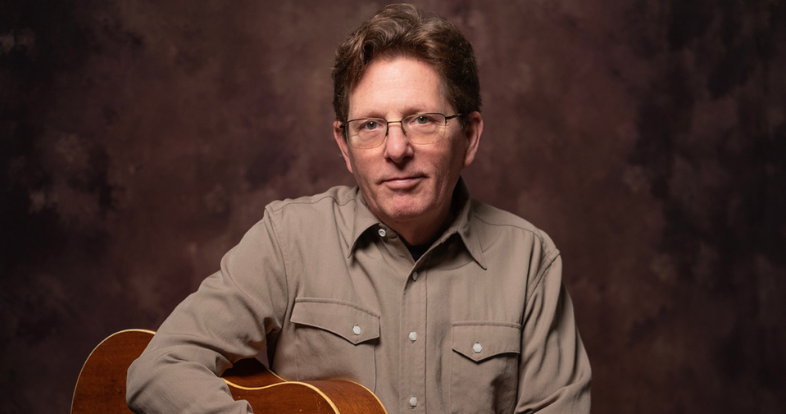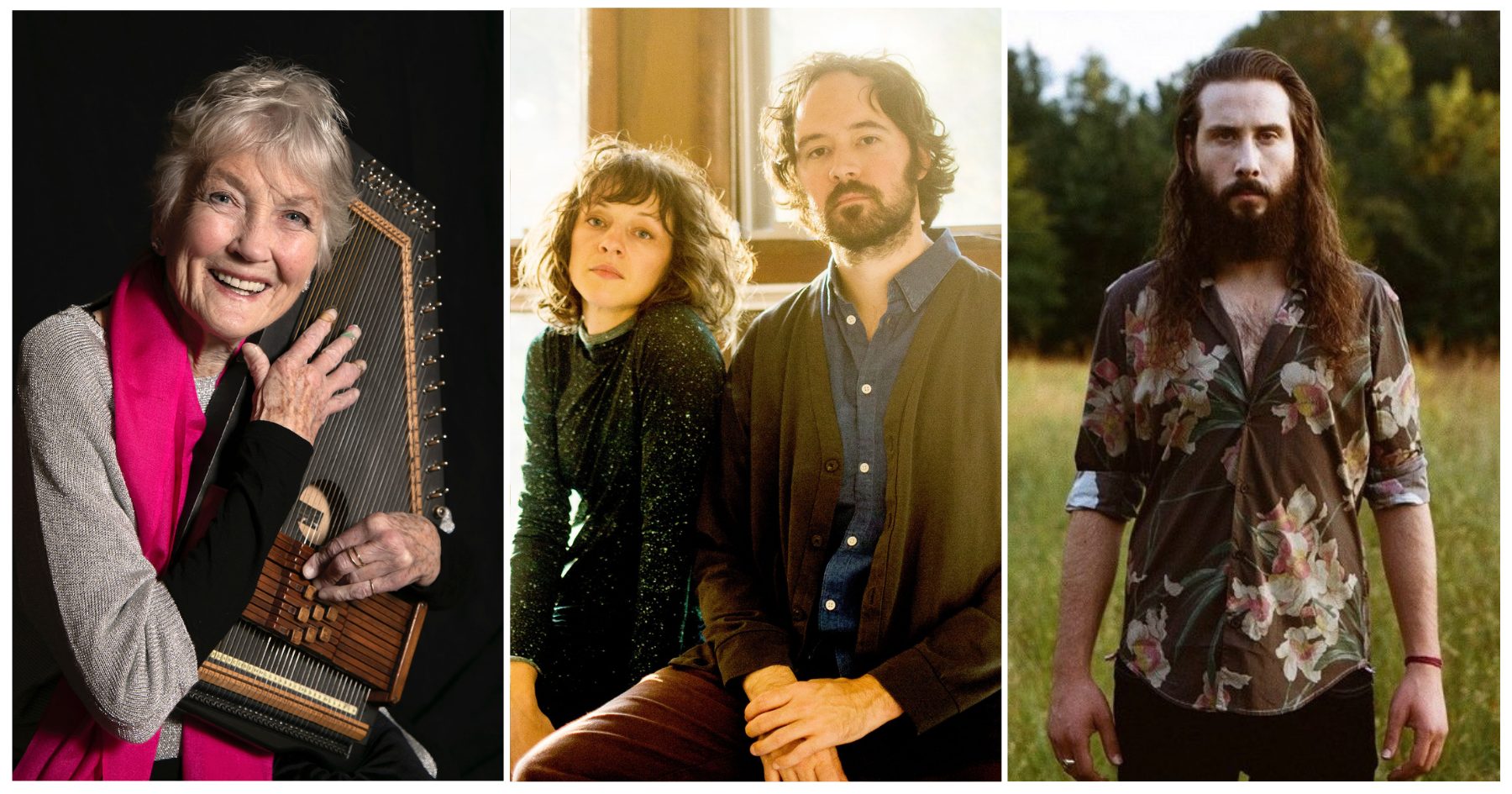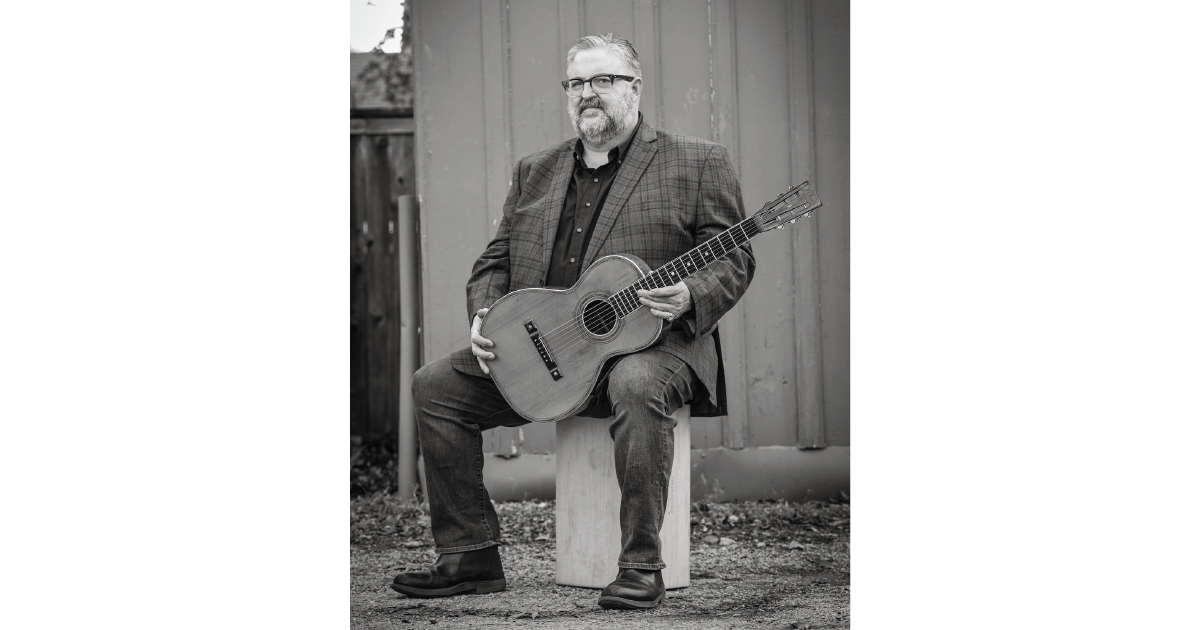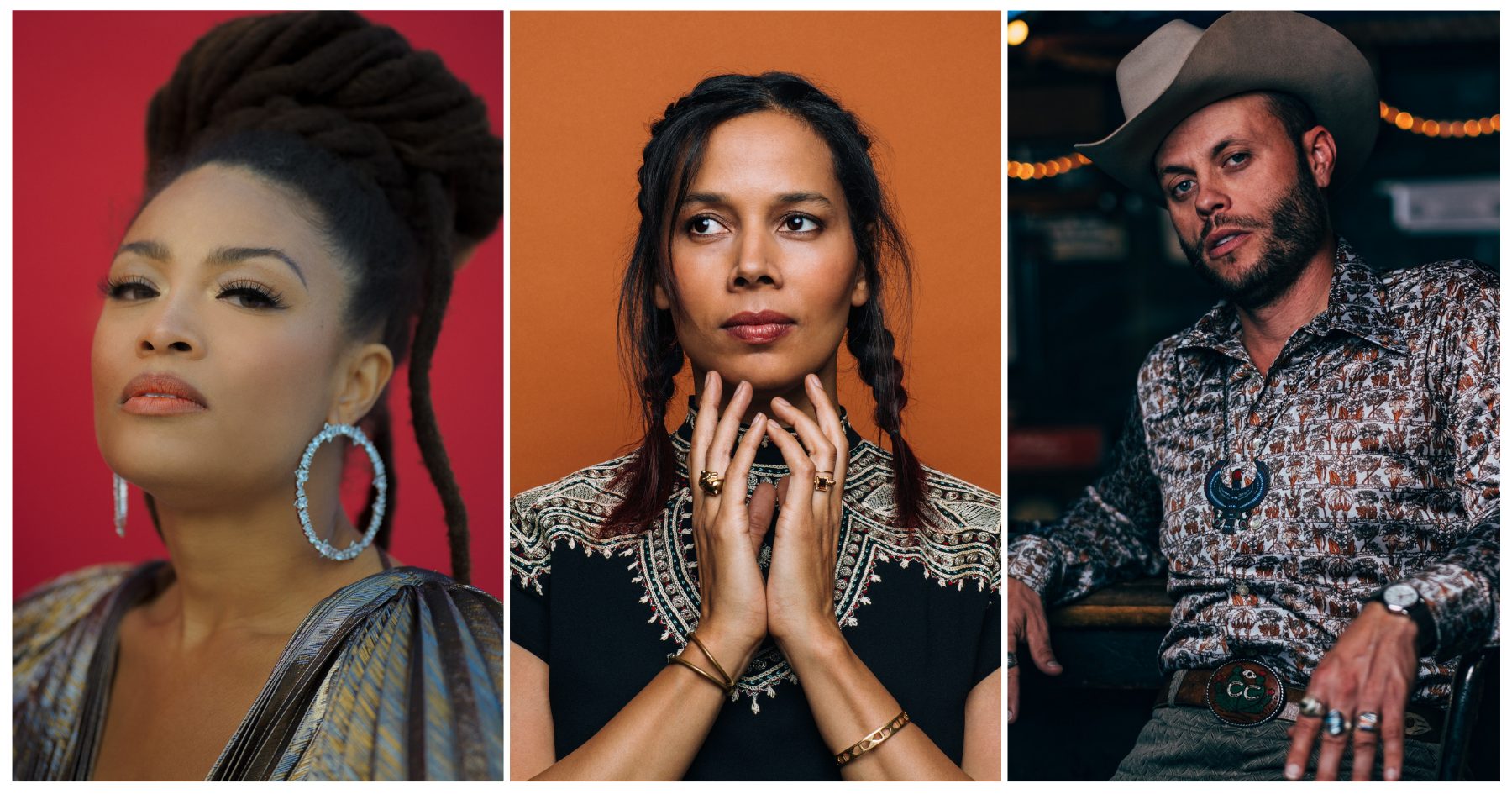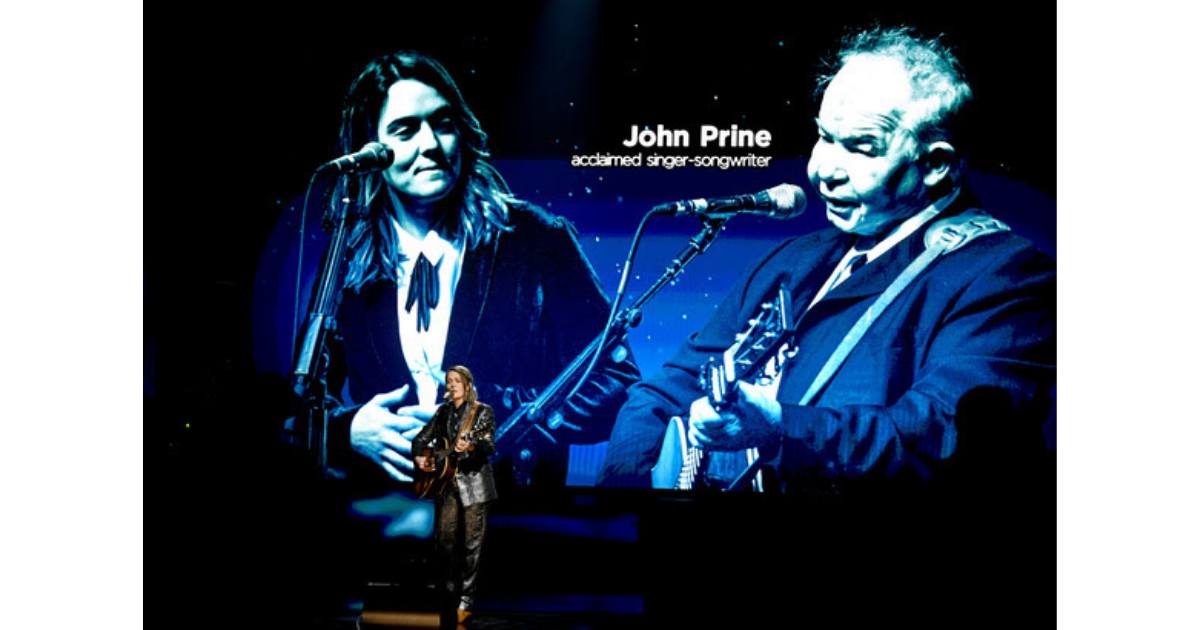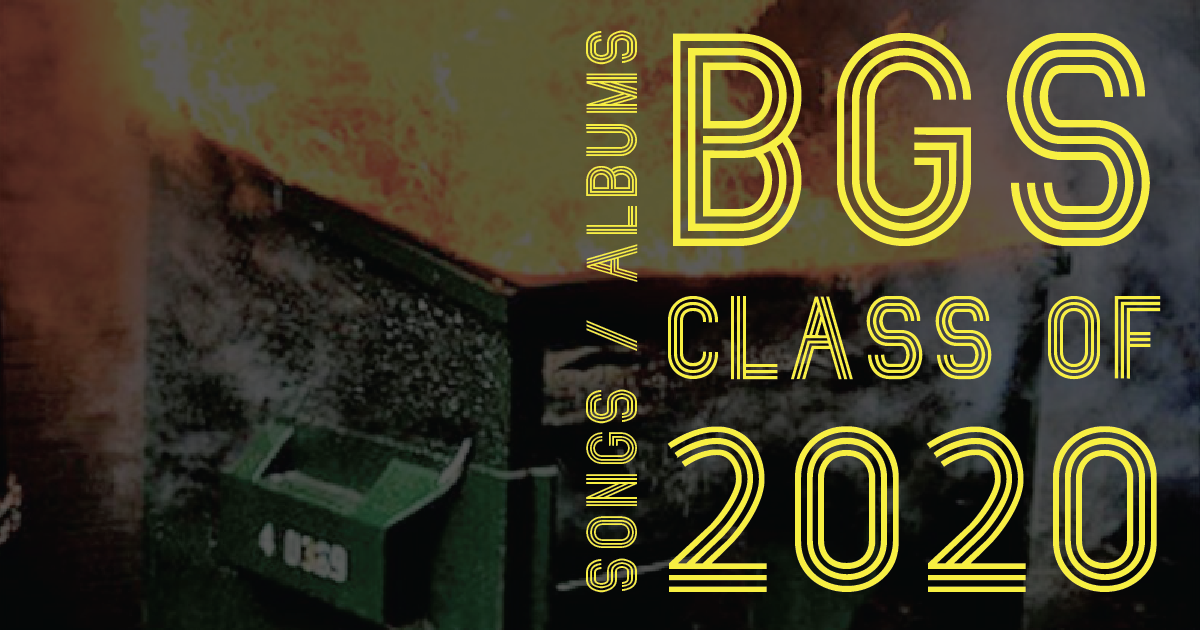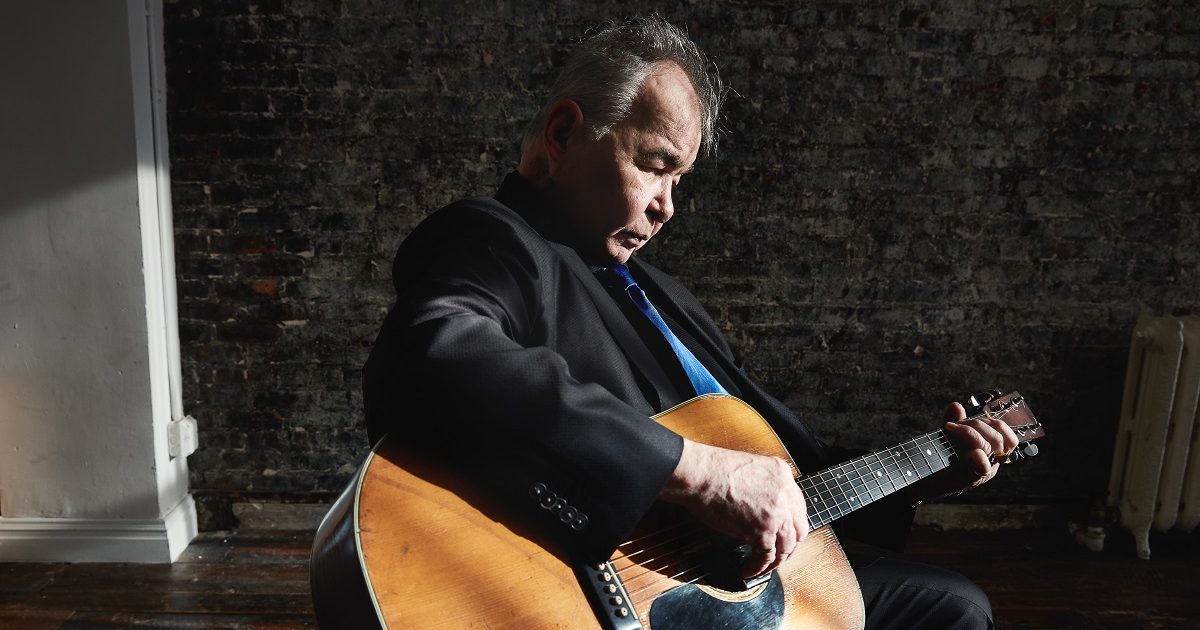Growing up with access to all of recorded music, it’s hard to imagine not enjoying a wide range of styles. When we all met around fifteen years ago, it was fun to see where our backgrounds overlapped and where they didn’t. Eventually, after lots of road testing, we ended up with some kind of sound to our band that is pretty unique. Our new album, No Bad Ideas, is an expression of that. It’s all over the place, but somehow not.
For this Mixtape, we set out to include music that’s influenced us as a band, inspired our playing and songwriting, or otherwise shaped us as people. Some of these are tunes that have been with us a long time, some of them we just listened to in the van while we’ve been on tour. It’s all over the place, but there’s a through line as well. No Bad Ideas in a playlist! – The Faux Paws
“TSA” – Danny Barnes
Just banjo, drums, and voice. It’s weird, sparse, beautiful, and one of those songs I’ve been coming back to for years. – Andrew VanNorstrand
“Rockingham” – The Faux Paws
This song is all about the excitement and uncertainty of moving to a new place and finding community, even if you aren’t necessarily ready for it. – AV
“Backstep Cindy” – The Freight Hoppers
July 1998. I am ten years old. I wander into the dance tent at the Grey Fox Bluegrass Festival and my tiny little mind is blown into a thousand pieces as I experience the absolutely insane energy of The Freight Hoppers. I’ve been chasing that feeling ever since. This. Tune. F-ing. Rocks. – AV
“Odds of Getting Even” – Maya de Vitry
I can’t get enough of this album. Maya sounds great. Her band sounds great. The material is great. This song has a subtle message of patience and perspective that really speaks to me. Play it again. – AV
“He’s Gone” – Caleb Klauder & Reeb Willms
Caleb and Reeb played for my wedding! They are true cornerstones of the amazing Pacific Northwest Americana scene and are launching a new festival this week, Orcasfest. Caleb wrote this song about his childhood dentist, who was also his best friend’s dad/second dad. – Chris Miller
“Jesus Was a Cross Maker” – Judee Sill
I am always telling people about this singular artist and I feel like her music is still pretty underground in my circles! She had a wild childhood and was caught up in the Laurel Canyon California music scene, experimenting with psychedelics and reflecting on her Christianity. The result is music that doesn’t sound like anything else I’ve ever heard. – CM
“For Me It’s You” – Jobi Riccio
I heard Jobi play this song in a hotel room in Kansas City during Folk Alliance and it broke me. Like, truly deeply broke me the way only a great song can. Everyone has a dream they know probably won’t come true. I needed this song. Maybe you do, too. – AV
“15 Below” – The Faux Paws
Every time we play this, Noah makes my jaw drop – and we captured some of that on the record. This tune came to life when we were quarantined in Newport, Rhode Island, January 2022. We went to try and find a bird on the beach and it was insanely cold. – CM
“Artificial Intelligence” – Jim Lauderdale
Most of the time we spend in the van is actually listening to terrifying podcasts about the seemingly inevitable AI future. I grew up seeing Jim Lauderdale play and I appreciate how he can remain frozen in a time of “real country” while still plundering the depths of current philosophical issues. – CM
“the 1” – Taylor Swift
Noah really, really, really likes Taylor Swift. And he picked this song. And that’s all. Hope you like it. Noah really likes it. A lot. Contact Noah directly for more details on how much he likes Taylor Swift. – AV
“Straight Back” – Taylor Ashton
I love the way this song slips and slides. Smooth groove, clever lyrics, ooo-eee-ooo-eeyoo hook in the chorus. It’s impossible to pin down. And why would you want to pin it down anyway? Just let it do its thing. Don’t worry about it. – AV
“You Are Also Them” – Jenny Ritter
I came across Jenny Ritter randomly around fifteen years ago and have been obsessed with her music ever since. We actually recorded our Backburner EP with the same engineer (Adam Iredale) on tiny Mayne Island, British Columbia. This track coincidentally has Zoe Guigueno on bass! – CM
“Unknowing” – Busman’s Holiday
I don’t have a long history with this song, but we were recently on tour in Nashville and Zoe played it for us. I just can’t shake it. You ever get the sense that a song is perceiving you just as much or more so than you are able to perceive it? I hope this song likes me. – AV
“I Didn’t Realize” – Buddy Spicher & Vassar Clements
The first music I learned to play was a mix of classic country, western swing, and contest-style fiddling from Ontario. I fell in love with twin fiddle harmonies and a tight rhythm section. Listening to these two fiddle legends riffing off of each other is such a joy. – AV
“I Just Wanna Listen to the Band Play” – Freddy & Francine
These guys (Bianca and Lee) are some of my idols, both in the way they make music and live with intention. As it seems we can’t beat the robots in the great war coming, I think the only hope for music and art is if we decide to be a little more intentional about … everything. This song is from 2020, but more relevant than ever! – CM
Photo Credit: Dylan Ladds

